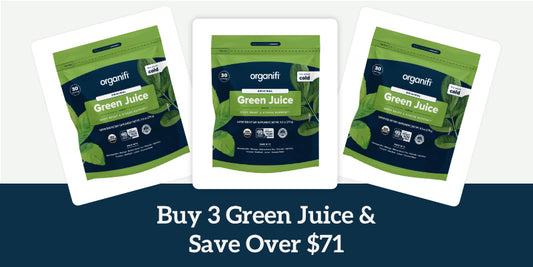First things first…
What exactly is collagen?
You may know someone who takes collagen supplements for healthier hair, or maybe you’ve seen collagen peptides in a canister at your local Whole Foods Market. Collagen is actually an important component within our bodies, essential for providing structure and support to muscles, joints, bones, and tissues. It also plays an important role in wound repair, skin strength and elasticity, and blood clotting.
In fact, collagen is the most abundant protein in the body. It’s everywhere – from your blood vessels and muscles all the way out to your skin and the tiny little hairs that live there too.
The word “collagen” literally means “the glue that keeps all our many different parts and pieces together,” and that’s a great way to think of it.
However… by the time we reach our 30s, we’ve already begun to lose our ability to produce healthy new collagen naturally. That’s when we start to experience the normal signs of aging (think: stiff and achy joints, wrinkly or sagging skin, and digestive issues).
But don’t worry! There’s good news!
Consuming high-quality protein and/ or collagen peptides gives your body a fresh, replenishing supply of the amino acids needed to create new collagen, which your body can then redistribute to your joints, muscles, organs, and skin.
The three main amino acids that make collagen are proline, glycine, and hydroxyproline. Together, they make up what’s called a triple-helix structure. To create this triple-helix, our bodies rely on other nutrients, too, like vitamin C, copper, and zinc.
If you’re curious like us (which we assume you are since you’ve read this far!), here are some good food sources of the building blocks needed to create new collagen:
Proline
Proline is created by the body and comes from glutamic acid, or glutamate. Good food sources of glutamate include bone broth, grass-fed beef, free-range chicken, turkey, and eggs, and mushrooms.
Glycine
Good sources of glycine include bananas, spinach, bone broth, grass-fed beef, wild-caught fish, and free-range chicken, turkey, and eggs
Hydroxyproline
Foods rich in hydroxyproline include grass-fed beef, free-range poultry, salmon, and gelatin.
Vitamin C
Vitamin C can be found in many fruits and vegetables, and is highest in oranges, grapefruit, kiwis, bell peppers (all colors), strawberries, brussels sprouts, and broccoli.
Copper
Copper is a trace mineral that can be found in oysters, beef liver, nuts and seeds (especially cashews, sesame seeds, and sunflower seeds), potatoes, mushrooms, and avocado.
Zinc
Zinc is highest in meat, fish, and seafood. The best sources include oysters, grass-fed beef, blue crab, pumpkin seeds, pork, turkey, lentils, cheddar cheese, and shrimp.
In addition to a healthy, balanced diet, there are also some lifestyle modifications you can make to help mitigate collagen loss and support the growth of new collagen in your body:
- If you currently smoke or vape, quitting is your best bet to preserve collagen and improve your overall health and well-being. The nicotine and chemicals found in cigarettes and vapes inhibit collagen synthesis and promote collagen breakdown, contributing to fine lines and wrinkles and delaying wound healing.
- Wear SPF. Exposure to UV light also damages collagen, leading to wrinkly, crepey skin. When you’re heading outdoors for more than 15-20 minutes, be sure to lather on SPF 30 or higher for protection.
- Limit your intake of refined carbohydrates and sugar. Refined carbohydrates and sugars turn quickly into sugar in your bloodstream. High blood sugar leads to inflammation and glycation, both of which inhibit collagen synthesis and damage existing collagen. (Glycation is a process in which sugar molecules attach to proteins to form advanced glycation end products, or AGEs for short. These AGEs damage neighboring proteins like collagen.)
So, to sum it up, collagen is an essential component of our skin and tissues, providing structure and elasticity, and enhancing cell growth and repair. As we age, collagen naturally starts to diminish, but a healthy diet filled with high-quality protein and supporting vitamins and minerals, along with a healthy lifestyle can help preserve our existing collagen and help promote new collagen production.
Organifi also offers two whole-food-based products to support collagen production - our Collagen made from pasture-raised beef, eggshell membrane, wild-caught fish, and bone broth, and our Glow raspberry lemonade, which is high in vitamin C and other collagen- and skin-supporting ingredients!




